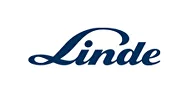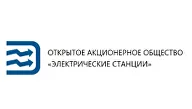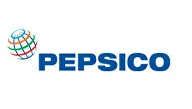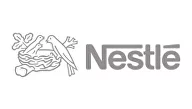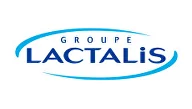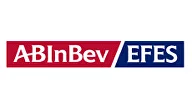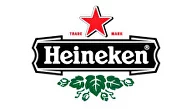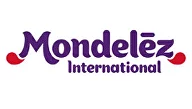CIP Best Price
Have you ever wondered how you can save money when installing new equipment in production? We have solved this issue and offer you a comprehensive service for the installation of CIP by the customer’s personnel under the guidance of expert technologists in brewing.

The covid pandemic and its associated restrictions have forced us to adopt a remote working format. We have adapted our engineering services for the design, supply, installation and commissioning of CIP stations in breweries with remote monitoring systems that help us control technological processes from anywhere in the world, 24/7.
What our unique service is about
What we do:
- We develop the equipment concept;
- We prepare a 3D model of the future CIP station and send it to the customer;
- Order equipment from the manufacturer and components for assembly;
- We provide remote support for the assembly, commissioning and start-up process;
- We take the facility under warranty.
What kind of work the customer does on his or her own:
- performs the mechanical assembly of the CIP station;
- connects the electrical connections and sets up the automation;
- conducts equipment testing.
All work is supervised by our experts via QiVisor.

The customer saves on travel costs for external specialists and the cost of component parts, which reduces the final cost of the investment project.
The quality of the assembly does not suffer, as all assembly work is carried out under our remote control. The service is suitable for companies that have their own qualified technicians who are able to understand the assembly drawings.
We have calculated that the savings to the customer from the DIY service amount to 300 euros per day. This is the travel costs of the experts when they visit the customer’s site in person. The customer also gets a 15-20% discount on the purchase of components for installation as for an engineering company.
«Viravix Engineering»: Bringing together top experts with brewers
Main steps and content of the work
The timing of the project is individual and depends, among other things, on the client’s readiness. We estimate that it takes two weeks for set-up and tests from the time the CIP station is fully assembled until the equipment goes into automatic operation.
Designing
«Viravix Engineering»:
- Develops a p&id diagram of the CIP station – a drawing of the washing process with all main and auxiliary equipment units, connections, control system elements.
- Prepares a 3D model of the future CIP. This is a three-dimensional model that will help the customer’s employees during assembly. Our specialists also develop a set of assembly drawings for all elements of the station and an assembly manual.
- Describes the specification of the equipment.
- Prepares the wiring diagram for the CIP.
Procurement and supply of a CIP station
«Viravix Engineering»:
- Selects equipment and spare parts.
- Arranges for the purchase of components through its representative offices to provide the customer with a discount as an engineering company.
- Assembles the electrical cabinet for the cip station. We carry out this step ourselves as a mistake here affects the operability of the entire cip station. Our engineers will not be able to correct remotely incorrect electrical connections. Also, without power supply the QiVisor sensors will not work and we will not be able to control the assembly process of the CIP station
Installation and commissioning
Customer staff, with remote support from Viravix engineers:
- Performs mechanical assembly of equipment according to ready-made assembly drawings and 3D models.
- Conducts dry tests. This is the process of manually checking that each element is working properly. The employee opens a valve, for example, and looks at its operation, displaying it on an HMI monitor. A Viravix specialist sees any errors through the monitoring system and coordinates his actions.
- Conducts calibration of the detectors. All detectors are universal, so it is essential to check that they work correctly in production, under real site conditions.
- Performs station tests when supplying media: steam, air, water, electricity, carbon dioxide. A hydraulic test is needed to find leaks. The customer’s employee runs the water and makes sure the connections are tight. If there is a leak, he tightens the connections. The same logic is used to check for leaks in other media: air, steam, electricity, carbon dioxide. If there is a leak, the connections are tightened.
- Performs a manual start-up of the equipment. The worker switches on any process. The purpose of the stage is to evaluate the performance of the equipment: pressure, temperature, flow rate, etc. At the same stage, Viravix specialists write a rough automation programme. For this purpose, they use ready-made algorithms of the CIP-station operation and the process values obtained during manual start-up.
- Puts the equipment into automatic operation. A written draft programme is loaded into the CIP station and specialists evaluate its operation. The opinions of three people are important to us: the CIP operator, the design engineer and the customer’s technician. The programmer takes their feedback into account and makes adjustments to the programme.
Conducts testing of the CIP under operating conditions. This is a ‘debugging’ phase where any inconveniences or discrepancies not identified in the tests and manual checks are eliminated.
Warranty service
Implemented remotely by Viravix Engineering during the warranty period of the equipment.
Our experts remotely supervise all activities of the customer’s CIP staff during assembly and commissioning. All errors are corrected in real time.
The QiVisor remote monitoring system is a key element of the entire project. During the installation phase, our specialists use it to correct the customer’s actions and monitor the assembly and testing process. During operation, we are able to monitor all wash process parameters and advise the customer’s employees on troubleshooting.
What are the risks and solutions for them
It is common for contractors, when carrying out turnkey projects, not to entrust the installation of equipment to the customer’s personnel, arguing that they care about the quality of the work. But we know from experience that this is just an excuse not to reduce the cost of the project. Our specialists have analysed the possible risks from self-assembly by the customer and have developed protective measures for them.
What benefits will the customer receive
The two main advantages are the financial benefit and the convenient monitoring system:
- savings on travel expenses of up to 300 euros per day;
- a 15-20 % reduction in component costs;
- the ability to remotely monitor the operation of the CIP from anywhere in the world.
Who we are
“Viravix Engineering is a team of process engineers in the food industry.
Each of our specialists has worked their way up from the rank-and-file maintenance worker to an area expert supervising 10-20 plants.
